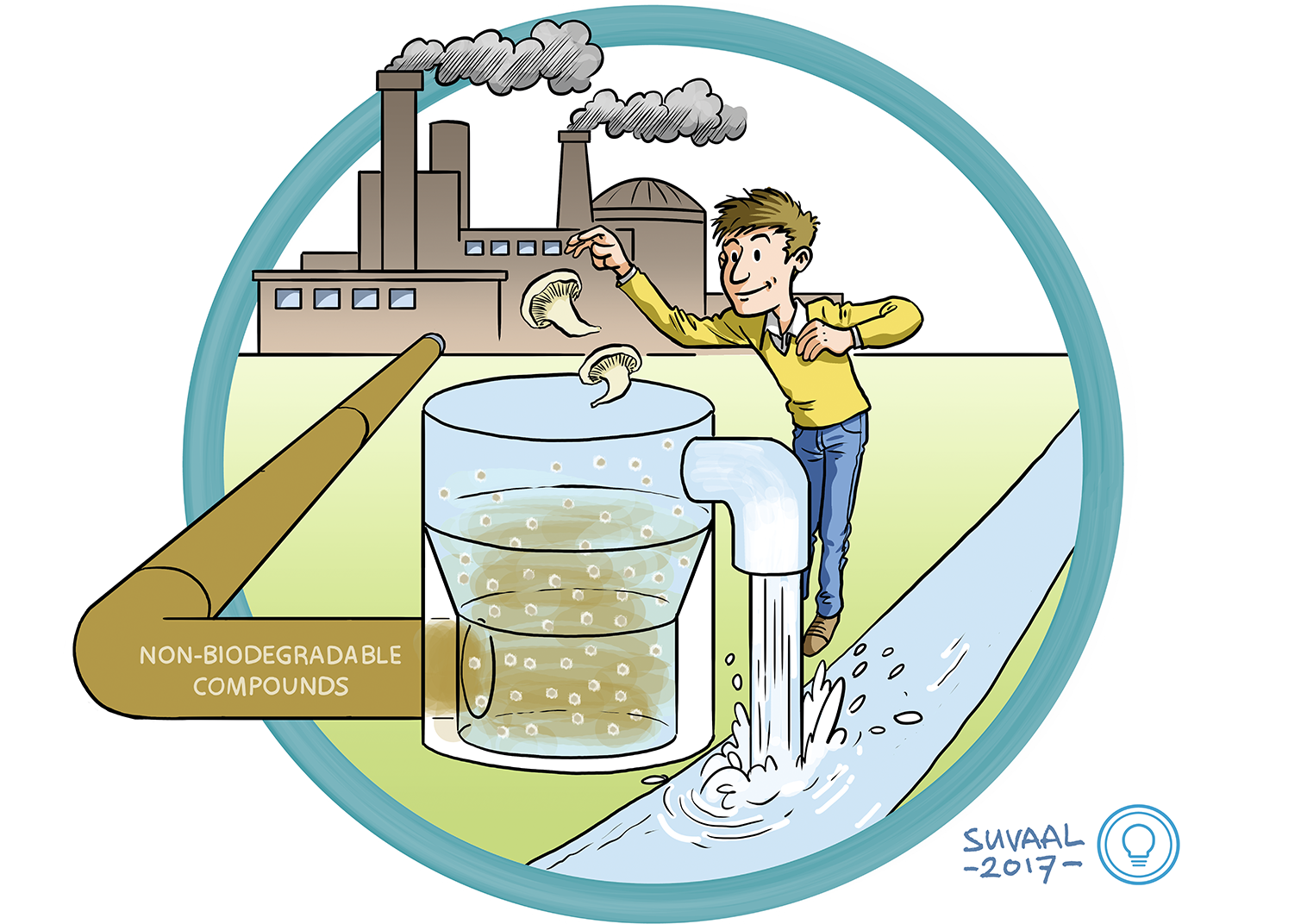Fungal treatment of recalcitrant organics in wastewaters
Themes: Water & Maritime, Chemistry, bio- & process technology

Late lab scale demonstration

A TRL is a measure to indicate the matureness of a developing technology. When an innovative idea is discovered it is often not directly suitable for application. Usually such novel idea is subjected to further experimentation, testing and prototyping before it can be implemented. The image below shows how to read TRL’s to categorise the innovative ideas.
Why?
White Rot Fungi (WRF) are able to degrade lignin-like recalcitrant aromatic compounds such as pharmaceuticals, humic acids, and industrial dyes. The main challenge is application of WRF under non-sterile conditions.
How?
By immobilizing WRF on cheap and abundant sorghum, they get a benefiting access to nutrients. This enables their application under non-sterile conditions and eliminates the need to add additional nutrients.
When?
A lab scale, continuous fluidized bed bioreactor has been developed, successfully removing humic acids (>70% continuous removal) from real industrial effluent under non-sterile conditions. Further scale up is now required.
Mostafa Zahmatkesh MSc
